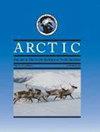北美北极和亚北极地区野生动物与土著居民福祉的关系:基于学术文献的综述
IF 0.8
4区 地球科学
Q4 ENVIRONMENTAL SCIENCES
引用次数: 2
摘要
北美各地的许多野生动物(北美驯鹿或驯鹿)的数量一直在下降,这给依赖该物种获得物质和文化维持的土著社区带来了各种挑战。本文采用范围审查方法,系统地检查和描述了发表在学术期刊上的关于北美北极和亚北极地区野生动物与土著居民福祉之间联系的文章的性质、程度和范围。两名审稿人独立使用资格标准来识别和筛选摘要和标题,然后筛选每一篇潜在相关文章的全文。要纳入本综述,文章必须讨论北美北极和亚北极地区Rangifer与土著居民福祉之间的联系,并在2018年之前发表。共确定并筛选了4279篇文章的相关性;58篇文章符合纳入标准,采用描述性定量和专题定性方法进行分析。研究结果体现了我们对北美地区土著文化、粮食安全、生计、心理健康和社会关系的了解的深度和多样性。确定了几个差距。人们对流浪动物与土著人民之间的心理联系以及与流浪动物有关的变化对土著人民福祉和适应能力的影响知之甚少。我们迫切需要更多地了解土著动物与流浪动物之间的情感联系,适应策略的有效性,以及与流浪动物相关的变化的代际影响。此外,让土著人民更多地参与有关这一主题的知识生产,对于未来理解土著与野生动物之间的关系至关重要。本文章由计算机程序翻译,如有差异,请以英文原文为准。
Relationships between Rangifer and Indigenous Well-being in the North American Arctic and Subarctic: A Review Based on the Academic Published Literature
Many Rangifer tarandus (caribou or reindeer) populations across North America have been declining, posing a variety of challenges for Indigenous communities that depend on the species for physical and cultural sustenance. This article used a scoping review methodology to systematically examine and characterize the nature, extent, and range of articles published in academic journals on the connection between Rangifer and Indigenous well-being in the Arctic and Subarctic regions of North America. Two reviewers independently used eligibility criteria to identify and screen abstracts and titles and then screen full texts of each potentially relevant article. To be included in this review, articles had to discuss linkages between Rangifer and Indigenous well-being in the North American Arctic and Subarctic and be published prior to 2018. A total of 4279 articles were identified and screened for relevance; 58 articles met the inclusion criteria and were analyzed using descriptive quantitative and thematic qualitative methods. Results characterized the depth and diversity of what we know about Rangifer for Indigenous culture, food security, livelihoods, psychological well-being, and social connections across North America in the academic literature. Several gaps were identified. Little is known about the psychological ties between Rangifer and Indigenous Peoples and the influence of Rangifer-related change on Indigenous well-being and adaptive capacity. We urgently need to know more about the emotional connections that arise from Indigenous-Rangifer linkages, the effectiveness of adaptive strategies, and the intergenerational implications of Rangifer-related change. Further, enhanced inclusion of Indigenous Peoples in the production of knowledge on this topic is fundamental to the future of understanding Indigenous-Rangifer relationships.
求助全文
通过发布文献求助,成功后即可免费获取论文全文。
去求助
来源期刊

Arctic
地学-环境科学
CiteScore
2.30
自引率
0.00%
发文量
51
审稿时长
6-12 weeks
期刊介绍:
Arctic is a peer-reviewed, primary research journal that publishes the results of scientific research
from all areas of Arctic scholarship. Original scholarly papers in the physical, social, and biological
sciences, humanities, engineering, and technology are included, as are book reviews,
commentaries, letters to the editor, and profiles of significant people, places, or events of northern
interest
 求助内容:
求助内容: 应助结果提醒方式:
应助结果提醒方式:


